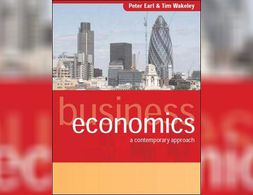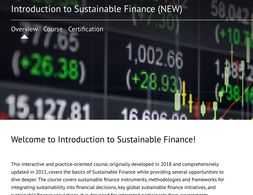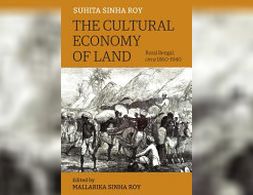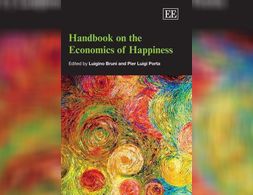✕
445 results
Planet Money and The Indicator aim to explain current economic events in an easy, fun and accessible manner.
Jason Smith takes a stab at blind faith in the efficiency of the price mechanism to provide market information. To do so, he calls upon Information Theory and Generative Adversarial Networks to argue the price mechanism is faulty and skewed towards supply.
The goal of the class is to acquire familiarity with recently-published research in alternative macroeconomics with a focus on the distribution of income and wealth, cyclical growth models, and technical change.
In order to address discrimination, we must understand and address its fundamental basis of systemic oppression. Stratification economics goes beyond myopic mainstream conceptualisations of discrimination and recognises the historical, institutional, and structural factors that create and maintain socioeconomic disparities and hierarchies. To critically approach the economics of discrimination, this workshop will focus on stratification economics, a systematic and empirically grounded approach to addressing intergroup inequality (Darity, 2005). Focusing on racial discrimination, we will discuss the core elements of stratification economics, critically evaluate its relevance, and apply these understandings to construct case studies and solutions for change. In our discussions, we will consider an array of topics, including intersecting oppressions, reparative justice, and the role of knowledge production in overcoming injustice and creating a better world.
How and by whom are International Labour Standards set? How are they supervised, and how can workers’ organisations use the ILO supervisory mechanisms? What are the key principles of Freedom of Association, the right to strike and Collective Bargaining?
In this course you will learn the basics for developing economically viable climate resilient plans The course starts with a review of the scientific consensus on changes in climate patterns and projections to the future and explains the rationale for countries to develop climate resilient plans that will help them …
The Austrian School of Economics is an intellectual tradition in economics and political economy dating back to Carl Menger in the late-19th century. Menger stressed the subjective nature of value in the individual decision calculus. Individual choices are indeed made on the margin, but the evaluations of rank ordering of ends sought in the act of choice are subjective to individual chooser.
Geographical economics starts from the observation that economic activity is clearly not randomly distributed across space. This revised and updated introduction to geographical economics uses the modern tools of economic theory to explain the who, why and where of the location of economic activity. The text provides an integrated, first-principles introduction to geographical economics for advanced undergraduate students and first-year graduate students, and has been thoroughly revised and updated to reflect important developments in the field, including new chapters on alternative core models and policy implications.
Designed for both undergraduates and MBA students taking their first course in business economics, this text focuses on introducing students to economics as a framework for understanding business. It is structured around problems that decision-makers face, such as rejuvenating the firm in the face of declining demand.
The world has changed dramatically in recent years and so has the field of economics, but many introductory economics textbooks have remained stuck in the past. This book provides a new beginning for the study of macroeconomics, fundamentally international in its approach and emphasizing current debates and research trends.
This book represents a new foundation for the study of microeconomics, viewed from a broad perspective that takes into account new developments at the intersections with psychology, political science, the natural sciences and philosophy.
This interactive and practice-oriented course updated in 2021 covers the basics of Sustainable Finance including sustainable finance instruments, methodologies and frameworks for integrating sustainability into financial decisions, key global sustainable finance initiatives, and sustainable finance regulations.
Lean Logic is the late David Fleming’s masterpiece, the product of more than thirty years’ work and a testament to the creative brilliance of one of Britain’s most important intellectuals. A dictionary unlike any other, it leads readers through Fleming’s stimulating exploration of fields as diverse as culture, history, science, art, logic, ethics, myth, economics, and anthropology, being made up of four hundred and four engaging essay-entries covering topics such as Boredom, Community, Debt, Growth, Harmless Lunatics, Land, Lean Thinking, Nanotechnology, Play, Religion, Spirit, Trust, and Utopia. The threads running through every entry are Fleming’s deft and original analysis of how our present market-based economy is destroying the very foundations—ecological, economic, and cultural— on which it depends, and his core focus: a compelling, grounded vision for a cohesive society that might weather the consequences
This course is an introduction to macroeconomics with a specific focus on the euro area. The theoretical part provides a critical presentation of the two key macroeconomic models: the (neo)classical approach and the Keynesian approach. This allows a comparative analysis of important macroeconomic topics:
- unemployment
- inflation
- government debt and Modern Monetary Theory
- banks and financial crises.
The policy-oriented part discusses the monetary policy of the ECB and the specific challenges for fiscal policy in the euro area. The course also presents other euro area specific topics: Optimum currency area, euro crises, Next Generation EU and Green New Deal.
In this course you'll learn about the tools used by scientists to understand complex systems. The topics you'll learn about include dynamics, chaos, fractals, information theory, self-organization, agent-based modeling, and networks.
Potts (economics, University of Queensland) proposes evolutionary microeconomics as a synthesis of the collective schools of heterodox economic thought with complex systems theory and graph theory.
Deforestation is estimated to be responsible for about 12-29% of global greenhouse gas emissions. This essay will explore ecological economics as an alternative lens through which to approach forest conservation and the acceleration of climate change.
What influence do changes in tax policy or state decisions on expenditure have on economic growth? For decades, this question has been controversially debated.
This course focus on the behaviour of individuals from an pluralist economic and an interdisciplinary bevavioural science apprach.
After completing the module, participants should be able to understand the economic consequences of gender inequality. They should be able to explain the contradictions between capital and care, analyze the labor market with a gender perspective and develop the ability to describe phenomena such as public policies taking into account "gender" as a category of analysis.
In its first edition, this book helped to define the emerging field of ecological economics. This new edition surveys the field today. It incorporates all of the latest research findings and grounds economic inquiry in a more robust understanding of human needs and behavior.
This book provides important insights into agrarian history and the economic and cultural meanings associated with land.
As the world's energy system faces a period of unprecedented change, a global struggle over who controls the sector--and for what purposes--is intensifying. The question of "green capitalism" is now unavoidable, for capitalist planners and anti-capitalist struggles alike.
The book critically engages with various Marxian perspectives on the dynamics on development and social progress It specifically engages with some key words in Marxian theory including Marx s early work on capitalist development and his later works on underdeveloped Russia Lenin s thesis on imperialism as a hurdle for …
Noneconomists often think that economists' approach to race is almost exclusively one of laissez-faire. Racism, Liberalism, and Economics argues that economists' ideas are more complicated.
Steve Keen analyses how mainstream economics fails when confronted with the covid-19-pandemic. Mainstream economics has propagated the dismantling of the state and the globalization of production - both of which make the crisis now so devastating. More fundamentally, mainstream economics deals with market systems, when what is needed to limit the virus’s spread is a command system.
The course will teach students to analyze the goals, implementation, and outcomes of economic policy.
This course will fundamentally ask whether we can, or even should use the word ‘decolonising’ in our pursuit of a better economics?
One hundred years ago the idea of 'the economy' didn't exist. Now, improving the economy has come to be seen as perhaps the most important task facing modern societies. Politics and policymaking are conducted in the language of economics and economic logic shapes how political issues are thought about and addressed.
Happy International Women s Day This International Women s Day 2018 is an opportune moment to highlight prominent scholars of Feminist Economics As a subdiscipline of economics Feminist Economics analyzes the interrelationship between gender and the economy often critiquing inequities and injustices perpetuated by mainstream paradigms Work of this nature …
After completing the module, participants should be able to analyse the concepts of degrowth, ecological unequal exchange, Green New Deal, and embeddedness by applying theories situated within the fields of academic research of Ecological Economics and Political Ecology.
This book is a welcome consolidation and extension of the recent expanding debates on happiness and economics. Happiness and economics, as a new field for research, is now of pivotal interest particularly to welfare economists and psychologists. This Handbook provides an unprecedented forum for discussion of the economic issues relating to happiness.
We use cookies on our website. Click on Accept to help us to make Exploring Economics constantly better!

























